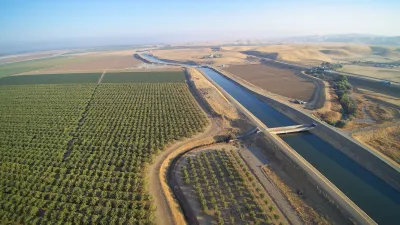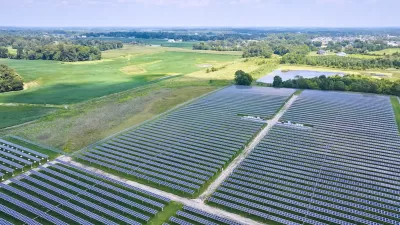The Economist argues that heavy reliance on solar power as an alternative energy source will not help Britain meet its greenhouse-gas reduction targets in 2050 due to operational and financial infeasibilities.
On the former point, Britain is a nation that experiences inclement weather year round, which prevents British households from getting adequate sunlight, except during ephemeral summer months.
"[S]olar energy can never play a central role in such a grey country. In Britain, consumption is lowest when the sun shines. And since the technology does not yet exist to store the electricity generated, conventional power plants are still needed during high demand. [B]y 2020 all small-scale generation will only amount to less than 2% of current electricity output."
According to the article, an argument against solar power in the UK can also be made strictly from a policy standpoint.
That the investment of $20,000 per household takes as long as 25 years to generate a 10% return makes solar subsidies "regressive" because "poor people spend a larger share of their income on fuel than the rich. The perks, meanwhile, go to those with panels-often wealthier homeowners." To that end, policymakers should curtail subsidies for solar panels and siphon that money to other renewable energy outlets that produce better results.
With 1990 as the baseline year, Britain sets its GHG reduction target at 80% by 2050.
FULL STORY: Why Britain should never count on sunshine for its power

Alabama: Trump Terminates Settlements for Black Communities Harmed By Raw Sewage
Trump deemed the landmark civil rights agreement “illegal DEI and environmental justice policy.”

Planetizen Federal Action Tracker
A weekly monitor of how Trump’s orders and actions are impacting planners and planning in America.

The 120 Year Old Tiny Home Villages That Sheltered San Francisco’s Earthquake Refugees
More than a century ago, San Francisco mobilized to house thousands of residents displaced by the 1906 earthquake. Could their strategy offer a model for the present?

Rural Population Grew Again in 2024
Americans continued to move to smaller towns and cities, resulting in a fourth straight year of growth in rural areas.

Safe Streets Grants: What to Know
This year’s round of Safe Streets for All grant criteria come with some changes.

Rural Missouri Transit Service Could Lose State Funding
OATS Transit offers low-cost rides to primarily elderly rural residents with little or no access to other transportation options.
Urban Design for Planners 1: Software Tools
This six-course series explores essential urban design concepts using open source software and equips planners with the tools they need to participate fully in the urban design process.
Planning for Universal Design
Learn the tools for implementing Universal Design in planning regulations.
Clanton & Associates, Inc.
Jessamine County Fiscal Court
Institute for Housing and Urban Development Studies (IHS)
City of Grandview
Harvard GSD Executive Education
Toledo-Lucas County Plan Commissions
Salt Lake City
NYU Wagner Graduate School of Public Service





























